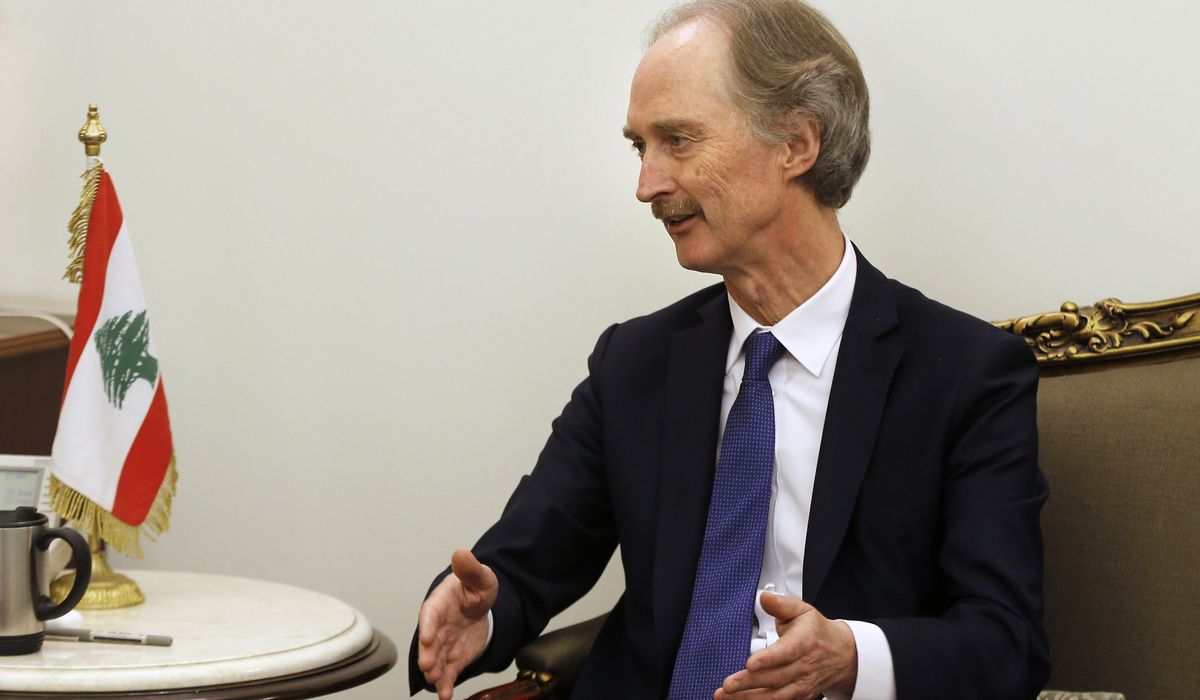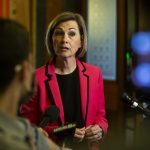
UNITED NATIONS (AP) – The U.N. special envoy for Syria said Wednesday that key global players are interested in stepped-up international diplomacy to “unlock progress” toward ending the country’s 10-year war.
Geir Pederson called for exploratory discussions to “help test possibilities and bridge the gaps of mistrust.”
Pedersen told the U.N. Security Council he spoke about the need for more constructive and comprehensive diplomacy to make progress toward resolving “this highly internationalized conflict” with senior officials from a number of countries. They include Russia, the United States, Turkey, Iran, the Arab world, Europe and other council members. He said he also spoke to the Syrian government and opposition.
“I appreciate that key international interlocutors are expressing interest in this idea,” Pedersen said. “At the same time, it is clear that mistrust and a desire for others to move first are prominent elements in the minds of many.”
Syrians in March marked a decade since peaceful protests against President Bashar Assad’s government erupted in March 2011, touching off a popular uprising that quickly turned into a full-blown civil war. Despite a decade of fighting and a broken country, Assad remains firmly in power and the country is economically devastated.
Pedersen said a “new international format” could bring stakeholders to the table. “With a relative, albeit fragile, calm on the ground, and many capitals understanding the need for a way forward, we need to explore what is possible” and “we should not lose further time,” he said.
Since the war erupted, there have been many high-level gatherings designed to stop the fighting and guide Syria to a political transition. Locations included Istanbul, Paris, Rome, Vienna and Geneva and included assemblies with names such as “Friends of Syria” and the “London 11.” In 2016 it was the “International Syria Support Group.” None has made a lasting impact.
Pedersen’s contention that international diplomacy is essential for peace in Syria came with “a warning to prioritize the proactive search for a settlement of the Syrian conflict.” He said that’s especially the case in light of the potential for the last year of relative calm to deteriorate.
Pedersen pointed to “a significant escalation” in the last rebel-held stronghold in northwest Syria, including airstrikes on a U.N.-supported hospital, the shelling of residential areas in western Aleppo, and strikes on the Syrian-Turkish border among several other trouble spots.
The worsening violence comes ahead of a government-scheduled presidential election May 26, which Pedersen stressed is being held under Syria’s current constitution without any U.N. involvement.
The United Nations continues to emphasize the importance of a negotiated political solution to the conflict as called for in a Security Council resolution adopted in December 2015, Pedersen said. It unanimously endorses a road map to peace in Syria approved in Geneva on June 30, 2012 by representatives of the U.N., Arab League, European Union, Turkey and all five permanent Security Council members.
It calls for the drafting of a new constitution and ends with U.N.-supervised elections under that document with all Syrians, including members of the diaspora, eligible to participate.
Pedersen has been trying, so far unsuccessfully, to get the Syrian government and the opposition to start negotiating a new constitution.
He told the council that after the co-chairs from both sides couldn’t agree on terms and methodology for a sixth session of the constitutional committee he proposed a compromise on April 15, which the government said it will respond to next week.
U.S. Ambassador Linda Thomas-Greenfield told the council “the failure to enact a new constitution is proof positive that the so-called election on May 26 will be a sham.” Until U.N.-supervised elections occur under a new constitution, she said, “we will not be fooled.”
Russia’s U.N. Ambassador Vassily Nebenzia, whose country is Syria’s closest ally, said Moscow continues efforts “to make sure the intra-Syria dialogue is successful” and hopes Pedersen can bring the government and opposition together for a new session of the constitutional committee.
As for the upcoming presidential vote, he said: “We lament the fact that some countries are up in arms against the very idea of the upcoming elections and have already declared them illegitimate.”
On the economic front, U.N. humanitarian chief Mark Lowcock warned that Syria‘s economic crisis is worsening, with more than half the households reporting “not having sufficient, or sufficiently nutritious food.”







